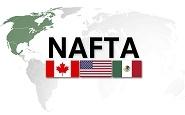Government/Policy

October 7, 2017
U.S. Raises the Stakes for Rules of Origin
Written by Sandy Williams
NAFTA negotiations are about to get even more contentious with a proposal by the Trump administration to increase U.S. domestic content in autos to 50 percent.
The administration also proposes increasing the NAFTA regional content requirement to 85 percent from the current 62.5 percent, said sources to Inside U.S. Trade.
The administration is facing tough opposition to changes to the rules of origin, not surprisingly from automakers themselves who have shifted production to sites all around North America.
The presidents of two automotive trade associations called Commerce Secretary Wilbur Ross’s assertion that “NAFTA rules of origin are killing American jobs” a “textbook example of the expression ‘can’t see the forest for the trees.'”
“Mr. Ross’s proposed NAFTA rules-of-origin changes would jeopardize the U.S. auto industry and the seven million jobs the sector supports,” said John Bozella, Association of Global Automakers, and Mitch Bainwol, Alliance of Automobile Manufacturers, in a Washington Post op-ed. “The United States will get lost in the forest if we focus on trade balances or content rules.”
“The current rules of origin get the balance right between promoting U.S. investment and employment across the industry while ensuring that the United States remains competitive against other auto manufacturing centers around the world,” said Bozzella, whose organization represents foreign automakers with U.S. operations.
“We’d be concerned,” said Matt Blunt, president of the American Automotive Policy Council representing the Detroit auto makers. “A poorly crafted rule of origin could have negative repercussions for our global competitiveness.”
The 2011 data that Wilbur Ross used to support his argument that NAFTA is bad for the U.S. automotive industry is wrong, said Flavio Volpe, president of the Automotive Parts Manufacturers’ Association of Canada.
“Mr. Ross quoted a figure of 15 percent U.S. content in Canadian-manufactured automotive goods, down from 21 percent at the signing of NAFTA,” said Volpe. “However, a recent Scotiabank Economics report put that figure at almost 60 percent.” He also noted that, according to Michigan’s Center for Automotive Research, U.S. content in Mexican manufactured automotive goods rose from 5 percent pre-NAFTA to 40 percent in 2014.
“Canada, the United States and Mexico make great cars together,” he added. “The industry in all three countries has supported this argument by making investments that know no borders and have strengthened their common value proposition against common external threats. It serves no one in any of the three countries to ignore the facts as we chart the next generation of success and prosperity. We are stronger together.”
In the Scotiabank Global Economics report referenced by Volpe, Senior Economist Carlos Gomes wrote that total North American content in NAFTA automobiles is more than 75 percent, well above the current requirement of 62.5 percent for vehicles. Raising the percentage or the U.S.-required content is not necessary, he said.
“Such actions would likely reduce the competitiveness of North American auto production, push more production to Mexico rather than into the U.S., and nudge auto producers to conduct some of their intra-North American trade under most-favoured-nation tariffs rather than bothering to qualify for duty-free access under NAFTA, thereby raising their costs further,” Gomes wrote.
Will Trump Pull out of NAFTA?
Some see the increasingly unpopular proposals by the U.S. administration as a sign that Trump will pull out of NAFTA. Along with the origin and content requirements, the U.S. negotiating team has proposed adding a five-year sunset clause to the agreement, reducing access by Canada and Mexico to U.S. procurement contracts, and weakening dispute settlement provisions.
“We are deeply worried by what the U.S. has added recently in the free-trade negotiations,” said Senator Marcela Guerra, who heads Mexico’s Senate committee on North American affairs. Mexico’s Institutional Revolutionary Party (PRI) is expected to oppose any deal that includes national quotas for U.S.-made auto parts and increasing controls over the trade in fresh produce.
“We’re increasingly concerned about the state of play in negotiations,” John Murphy, senior vice president for international policy at the U.S. Chamber of Commerce, told reporters Friday in Washington. “We see these proposals as highly dangerous, and even one of them could be significant enough to move the business and agriculture community to oppose an agreement,” he said.
Former U.S. Trade Representative Robert Zoellick told Bloomberg that Trump may pull out of NAFTA because the administration will not be able to deliver on promises to reduce the U.S. trade deficit. “There’s at least a 50 percent chance that Trump pulls out of this thing over the next year,” said Zoellick.
The fourth round of negotiations takes place Oct. 11-15 in Washington, D.C.







